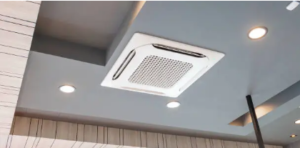In today’s world, where climate change is a major concern and energy resources are becoming scarcer, the need for energy-efficient solutions in every aspect of life is more apparent than ever. Among these, air conditioning, a staple for comfort in many regions, stands out as a significant contributor to energy consumption and environmental impact. On the other hand, the development of energy efficient air conditioning Adelaide systems has been made possible by technological developments as well as a growing understanding of the importance of sustainability. The purpose of this article is to look into the significance of air conditioning that is efficient in terms of energy consumption and to explore the new solutions that are defining the future of comfort.
The Need for Energy Efficiency:
 Traditional air conditioning systems rely heavily on fossil fuels and emit greenhouse gasses, contributing to climate change. Additionally, their inefficiency leads to excessive energy consumption and high utility bills for consumers. As the normal temperature of the planet continues to rise, there is an increasing demand for cooling solutions, which is making these problems even more severe. For this reason, making the switch to more energy-efficient air conditioning is essential in order to lessen the impact on the environment and make energy expenses more affordable.
Traditional air conditioning systems rely heavily on fossil fuels and emit greenhouse gasses, contributing to climate change. Additionally, their inefficiency leads to excessive energy consumption and high utility bills for consumers. As the normal temperature of the planet continues to rise, there is an increasing demand for cooling solutions, which is making these problems even more severe. For this reason, making the switch to more energy-efficient air conditioning is essential in order to lessen the impact on the environment and make energy expenses more affordable.
Advancements in Technology:
Recent years have seen remarkable advancements in air conditioning technology, driven by the demand for sustainability and efficiency. One such innovation is the development of variable refrigerant flow (VRF) systems. The flow of refrigerant in variable-refrigerant (VRF) systems is adjusted to fit the cooling demand, which results in significant energy savings. It is in contrast to traditional systems, which move at a fixed speed. Another advantage of VRF systems is that they provide zone management, which enables users to personalize the temperatures in multiple areas for the purpose of achieving maximum comfort and efficiency.
Another promising technology for energy efficient air conditioning Adelaide systems is the integration of smart thermostats and controls. These devices utilize sensors and algorithms to regulate temperature settings based on occupancy, weather conditions, and user preferences. By optimizing cooling cycles and reducing unnecessary energy consumption, smart thermostats play a crucial role in enhancing the efficiency of air conditioning systems.
Furthermore, advancements in compressor technology have led to the development of inverter-driven compressors, which adjust their speed according to the cooling demand. It results in smoother operation, lower energy consumption, and reduced wear and tear on the system components, extending their lifespan.
Renewable Energy Integration:
Incorporating solar power into air conditioning systems further enhances their efficiency and sustainability. Solar-powered air conditioning utilizes photovoltaic panels to generate electricity, which powers the cooling process. By harnessing clean energy from the sun, these systems reduce reliance on grid electricity and minimize carbon emissions.
The Role of Building Design:
Beyond technological innovations, building design plays a crucial role in maximizing the efficiency of air conditioning systems. Proper insulation, strategic placement of windows, and the use of passive cooling techniques such as natural ventilation and shading can significantly reduce the cooling load on buildings. By minimizing heat gain and maximizing natural airflow, energy-efficient building design complements the performance of air conditioning systems, resulting in lower energy consumption and operational costs.
Government Incentives and Regulations:
Governments around the world are recognizing the importance of energy efficiency in mitigating climate change and promoting sustainable development. As a result, many jurisdictions offer incentives, rebates, and tax credits to encourage the adoption of energy efficient air conditioning systems. Additionally, stringent building codes and regulations mandate the use of energy-efficient equipment in new construction and renovations, driving market demand for sustainable solutions.
Energy-efficient air conditioning is no longer just a luxury but a necessity in today’s world. With the increasing demand for cooling and the growing concerns over energy consumption and environmental impact, innovative solutions are essential for achieving sustainability without compromising comfort. Through advancements in technology, integration of renewable energy sources, thoughtful building design, and supportive government policies, the future of air conditioning is becoming greener and more efficient. By embracing these solutions, we can create a more sustainable and comfortable world for generations to come.
